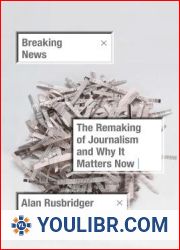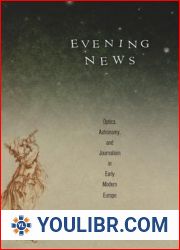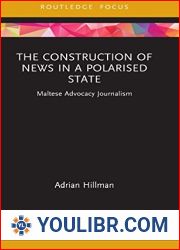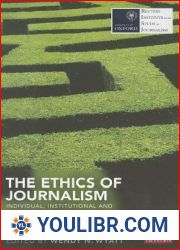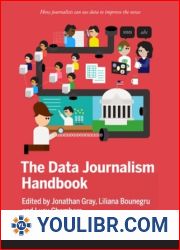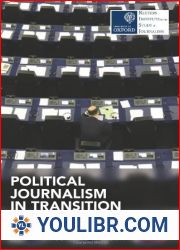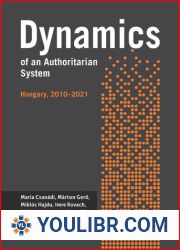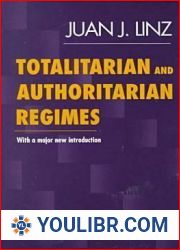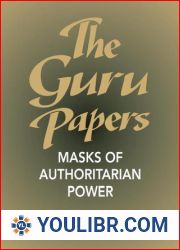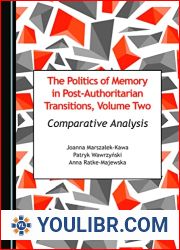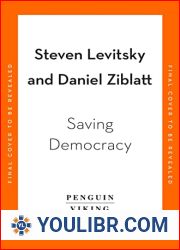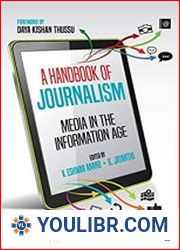
BOOKS - Authoritarian Journalism: Controlling the News in Post-Conflict Rwanda (Journ...

Authoritarian Journalism: Controlling the News in Post-Conflict Rwanda (Journalism and Political Communication Unbound)
Author: Ruth Moon
Year: October 3, 2023
Format: PDF
File size: PDF 3.7 MB
Language: English
Year: October 3, 2023
Format: PDF
File size: PDF 3.7 MB
Language: English
Authoritarian Journalism: Controlling the News in Post-Conflict Rwanda In the aftermath of the devastating 1994 genocide, Rwanda has undergone significant transformations, including the resurgence of a stable journalism industry. However, despite this progress, journalists in the country face immense challenges in their pursuit of truthful reporting due to the authoritarian state's pressure to conform to its ideologies. The practice of journalism in Rwanda is shaped by historical antagonisms, global development initiatives, and the authoritarian state, creating seemingly irreconcilable pressures for those working in the field. In her ethnographic work, Ruth Moon explores the intricacies of journalistic practice in Rwanda and argues that not only is globalization insufficient to alter local practices, but it actually reinforces local norms and boundaries. This book is a crucial contribution to understanding the complexities of journalism in post-conflict countries and the importance of studying local conditions to comprehend how they shape global norms. Historical Antagonisms and Global Development Initiatives The history of Rwanda is marked by deep-seated divisions between the Hutu and Tutsi ethnic groups, which have had a profound impact on the country's political and social landscape. These tensions have influenced the development of journalism in the country, with many journalists facing pressure to conform to the state's expectations and avoid controversial topics that might provoke tensions between the two groups. Moreover, global development initiatives have further complicated the situation, as they often prioritize economic growth over press freedom and independent reporting.
Авторитарная журналистика: контроль за новостями в постконфликтной Руанде После разрушительного геноцида 1994 года Руанда претерпела значительные преобразования, включая возрождение стабильной журналистской индустрии. Однако, несмотря на этот прогресс, журналисты в стране сталкиваются с огромными проблемами в своем стремлении к правдивому репортажу из-за давления авторитарного государства, чтобы соответствовать его идеологиям. Практика журналистики в Руанде формируется историческими антагонизмами, инициативами глобального развития и авторитарным государством, создавая, казалось бы, непримиримое давление для тех, кто работает на местах. В своей этнографической работе Рут Мун исследует тонкости журналистской практики в Руанде и утверждает, что глобализация не только недостаточна для изменения местных практик, но и фактически усиливает местные нормы и границы. Эта книга является важнейшим вкладом в понимание сложностей журналистики в постконфликтных странах и важности изучения местных условий для понимания того, как они формируют глобальные нормы. Исторические антагонизмы и глобальные инициативы в области развития История Руанды отмечена глубокими разногласиями между этническими группами хуту и тутси, которые оказали глубокое влияние на политический и социальный ландшафт страны. Эта напряженность повлияла на развитие журналистики в стране, многие журналисты столкнулись с давлением, чтобы соответствовать ожиданиям государства и избегать спорных тем, которые могут спровоцировать напряженность между двумя группами. Более того, глобальные инициативы в области развития еще больше осложнили ситуацию, поскольку они часто отдают приоритет экономическому росту, а не свободе прессы и независимой отчетности.
Journalisme autoritaire : le contrôle de l'information dans un Rwanda sortant d'un conflit Depuis le génocide dévastateur de 1994, le Rwanda a subi une transformation considérable, y compris la renaissance d'une industrie du journalisme stable. Cependant, malgré ces progrès, les journalistes du pays sont confrontés à d'énormes défis dans leur quête d'un reportage véridique en raison des pressions exercées par un État autoritaire pour qu'il soit conforme à ses idéologies. La pratique du journalisme au Rwanda est façonnée par des antagonismes historiques, des initiatives de développement mondial et un État autoritaire, créant une pression apparemment implacable pour ceux qui travaillent sur le terrain. Dans son travail ethnographique, Ruth Moon explore les subtilités des pratiques journalistiques au Rwanda et affirme que la mondialisation est non seulement insuffisante pour modifier les pratiques locales, mais aussi pour renforcer les normes et les frontières locales. Ce livre est une contribution essentielle à la compréhension de la complexité du journalisme dans les pays sortant d'un conflit et de l'importance d'étudier les conditions locales pour comprendre comment elles façonnent les normes mondiales. Antagonismes historiques et initiatives mondiales de développement L'histoire du Rwanda est marquée par de profondes divisions entre les ethnies hutu et tutsi, qui ont eu un impact profond sur le paysage politique et social du pays. Ces tensions ont influencé le développement du journalisme dans le pays, et de nombreux journalistes ont fait face à des pressions pour répondre aux attentes de l'État et éviter les sujets controversés qui pourraient provoquer des tensions entre les deux groupes. De plus, les initiatives mondiales de développement ont rendu la situation encore plus difficile, car elles donnent souvent la priorité à la croissance économique plutôt qu'à la liberté de la presse et à l'indépendance des rapports.
Periodismo autoritario: control de las noticias en Rwanda después del conflicto Tras el devastador genocidio de 1994, Rwanda ha experimentado una transformación importante, incluido el resurgimiento de una industria periodística estable. n embargo, a pesar de este avance, los periodistas del país se enfrentan a enormes desafíos en su búsqueda de reportajes veraces debido a la presión de un estado autoritario para ajustarse a sus ideologías. La práctica del periodismo en Ruanda está formada por antagonismos históricos, iniciativas de desarrollo global y un estado autoritario, creando presiones aparentemente irreconciliables para quienes trabajan en el campo. En su trabajo etnográfico, Ruth Moon explora las sutilezas de la práctica periodística en Ruanda y sostiene que la globalización no solo no es suficiente para cambiar las prácticas locales, sino que de hecho refuerza las normas y fronteras locales. Este libro es una contribución crucial para comprender las complejidades del periodismo en los países que salen de un conflicto y la importancia de explorar las condiciones locales para entender cómo dan forma a las normas globales. Antagonismos históricos e iniciativas mundiales de desarrollo La historia de Rwanda está marcada por profundas divisiones entre los grupos étnicos hutus y tutsis, que han tenido un profundo impacto en el panorama político y social del país. Esta tensión ha afectado el desarrollo del periodismo en el país, muchos periodistas han enfrentado presiones para cumplir con las expectativas del Estado y evitar temas polémicos que puedan provocar tensiones entre ambos grupos. Además, las iniciativas mundiales de desarrollo han complicado aún más la situación, ya que suelen dar prioridad al crecimiento económico en lugar de a la libertad de prensa y la rendición de cuentas independiente.
Jornalismo autoritário: controle de notícias no Ruanda pós-conflito Depois do devastador genocídio de 1994, Ruanda sofreu uma transformação significativa, incluindo o ressurgimento de uma indústria jornalística estável. No entanto, apesar desse progresso, os jornalistas no país enfrentam enormes desafios na sua busca por uma reportagem verdadeira, devido à pressão de um estado autoritário para se adequar às suas ideologias. A prática do jornalismo em Ruanda é moldada por antagonismos históricos, iniciativas de desenvolvimento global e um estado autoritário, criando pressões aparentemente intransigentes para quem trabalha no terreno. Em seu trabalho etnográfico, Ruth Moon explora as sutilezas da prática jornalística em Ruanda e afirma que a globalização não é apenas insuficiente para mudar as práticas locais, mas também reforça as normas e fronteiras locais. Este livro é uma contribuição essencial para compreender a complexidade do jornalismo nos países pós-conflito e a importância de explorar as condições locais para compreender a forma como eles formam as normas globais. Antagonismos históricos e iniciativas globais de desenvolvimento A história de Ruanda é marcada por profundas diferenças entre as etnias hutu e tutsi, que influenciaram profundamente a paisagem política e social do país. Estas tensões têm afetado o desenvolvimento do jornalismo no país, e muitos jornalistas têm enfrentado pressões para atender às expectativas do Estado e evitar temas controversos que podem provocar tensões entre os dois grupos. Além disso, as iniciativas globais de desenvolvimento tornaram a situação ainda mais difícil, pois muitas vezes priorizam o crescimento econômico em vez da liberdade de imprensa e da prestação de contas independente.
Giornalismo autoritario: il controllo delle notizie nel Ruanda dopo il conflitto Il Ruanda ha subito notevoli trasformazioni dopo il devastante genocidio del 1994, tra cui il rilancio di un'industria giornalistica stabile. Tuttavia, nonostante questi progressi, i giornalisti del paese devono affrontare enormi sfide nella loro ricerca di un reportage vero a causa delle pressioni di uno stato autoritario per adeguarsi alle sue ideologie. La pratica del giornalismo in Ruanda è costituita da antagonismi storici, iniziative di sviluppo globale e da uno stato autoritario, creando pressioni apparentemente intransigenti per chi lavora sul campo. Nel suo lavoro etnografico, Ruth Moon esplora le finezze della pratica giornalistica in Ruanda e sostiene che la globalizzazione non è solo insufficiente a cambiare le pratiche locali, ma anche a rafforzare le norme e i confini locali. Questo libro è un contributo fondamentale per comprendere la complessità del giornalismo nei paesi dopo il conflitto e l'importanza di esplorare le condizioni locali per capire come formano le norme globali. Antagonismi storici e iniziative di sviluppo globali La storia del Ruanda è segnata da profonde divergenze tra i gruppi etnici Hutu e Tutsi, che hanno influenzato profondamente il panorama politico e sociale del paese. Queste tensioni hanno influenzato l'evoluzione del giornalismo nel paese, molti giornalisti hanno affrontato pressioni per soddisfare le aspettative dello stato ed evitare controversie che potrebbero scatenare tensioni tra i due gruppi. Inoltre, le iniziative di sviluppo globali hanno reso le cose ancora più difficili, perché spesso danno la priorità alla crescita economica, piuttosto che alla libertà di stampa e di rendicontazione indipendente.
Autoritärer Journalismus: Kontrolle über die Nachrichten im Post-Konflikt-Ruanda Nach dem verheerenden Völkermord von 1994 hat Ruanda bedeutende Veränderungen erfahren, darunter die Wiederbelebung einer stabilen journalistischen Industrie. Trotz dieser Fortschritte stehen die Journalisten im Land aufgrund des Drucks des autoritären Staates, sich seinen Ideologien anzupassen, vor enormen Herausforderungen in ihrem Streben nach wahrheitsgemäßer Berichterstattung. Die journalistische Praxis in Ruanda ist von historischen Antagonismen, globalen Entwicklungsinitiativen und einem autoritären Staat geprägt und erzeugt einen scheinbar unversöhnlichen Druck für diejenigen, die vor Ort arbeiten. In ihrer ethnografischen Arbeit untersucht Ruth Moon die Feinheiten der journalistischen Praxis in Ruanda und argumentiert, dass die Globalisierung nicht nur nicht ausreicht, um lokale Praktiken zu verändern, sondern tatsächlich lokale Normen und Grenzen stärkt. Dieses Buch ist ein entscheidender Beitrag zum Verständnis der Komplexität des Journalismus in Ländern nach Konflikten und der Bedeutung der Untersuchung lokaler Bedingungen, um zu verstehen, wie sie globale Normen prägen. Historische Antagonismen und globale Entwicklungsinitiativen Die Geschichte Ruandas ist geprägt von tiefen Spaltungen zwischen den Volksgruppen der Hutu und Tutsi, die tiefgreifende Auswirkungen auf die politische und soziale Landschaft des Landes hatten. Diese Spannungen beeinflussten die Entwicklung des Journalismus im Land, wobei viele Journalisten unter Druck standen, die Erwartungen des Staates zu erfüllen und kontroverse Themen zu vermeiden, die Spannungen zwischen den beiden Gruppen auslösen könnten. Darüber hinaus haben globale Entwicklungsinitiativen die tuation weiter erschwert, da sie häufig dem Wirtschaftswachstum Vorrang vor Pressefreiheit und unabhängiger Berichterstattung einräumen.
עיתונות רודנית: שליטה בחדשות שלאחר העימות ברואנדה מאז רצח העם ההרסני של 1994, רואנדה עברה שינוי משמעותי, כולל תחייתה של תעשיית עיתונאות יציבה. למרות ההתקדמות הזאת, העיתונאים במדינה מתמודדים עם אתגרים עצומים ברדיפתם אחר דיווח אמיתי בשל הלחץ של המדינה הרודנית להתאים את עצמה לאידיאולוגיות שלה. העיסוק בעיתונות ברואנדה מעוצב על ידי אנטגוניזמים היסטוריים, יוזמות פיתוח גלובליות ומדינה רודנית, בעבודתה האתנוגרפית, רות מון חוקרת את המורכבות של הנוהג העיתונאי ברואנדה וטוענת שהגלובליזציה אינה מספקת רק לשינוי מנהגים מקומיים, אלא למעשה מחזקת נורמות וגבולות מקומיים. ספר זה הוא תרומה קריטית להבנת המורכבות של העיתונות במדינות שלאחר הקונפליקט ולחשיבות בחינת התנאים המקומיים כדי להבין כיצד הם מעצבים נורמות גלובליות. אנטגוניזם היסטורי ויוזמות פיתוח גלובליות ההיסטוריה של רואנדה מסתמנת על ידי פילוגים עמוקים בין קבוצות אתניות הוטו וטוטסי שהשפיעו עמוקות על הנוף הפוליטי והחברתי של המדינה. מתחים אלה השפיעו על התפתחות העיתונות במדינה, כאשר עיתונאים רבים עומדים בפני לחץ לעמוד בציפיות המדינה ולהימנע מנושאים שנויים במחלוקת העלולים לעורר מתחים בין שתי הקבוצות. יתרה מזאת, יוזמות הפיתוח הגלובליות סיבכו עוד יותר את המצב, משום שלעיתים קרובות הן מקנות עדיפות לצמיחה כלכלית על פני חופש העיתונות ואחריות עצמאית.''
الصحافة الاستبدادية: التحكم في الأخبار في رواندا ما بعد الصراع منذ الإبادة الجماعية المدمرة في عام 1994، شهدت رواندا تحولًا كبيرًا، بما في ذلك إحياء صناعة الصحافة المستقرة. على الرغم من هذا التقدم، يواجه الصحفيون في البلاد تحديات هائلة في سعيهم للحصول على تقارير حقيقية بسبب ضغوط الدولة الاستبدادية للتوافق مع أيديولوجياتها. تتشكل ممارسة الصحافة في رواندا من خلال العداوات التاريخية ومبادرات التنمية العالمية والدولة الاستبدادية، مما يخلق ضغوطًا لا يمكن التوفيق بينها على ما يبدو لأولئك الذين يعملون على الأرض. في عملها الإثنوغرافي، تستكشف روث مون تعقيدات الممارسة الصحفية في رواندا وتجادل بأن العولمة ليست فقط غير كافية لتغيير الممارسات المحلية، ولكنها في الواقع تعزز المعايير والحدود المحلية. يعد هذا الكتاب مساهمة حاسمة في فهم تعقيدات الصحافة في البلدان الخارجة من الصراع وأهمية دراسة الظروف المحلية لفهم كيفية تشكيل المعايير العالمية. يتميز تاريخ رواندا بالعداوات التاريخية ومبادرات التنمية العالمية بانقسامات عميقة بين الجماعات العرقية الهوتو والتوتسي كان لها تأثير عميق على المشهد السياسي والاجتماعي للبلد. أثرت هذه التوترات على تطور الصحافة في البلاد، حيث يواجه العديد من الصحفيين ضغوطًا لتلبية توقعات الدولة وتجنب الموضوعات المثيرة للجدل التي قد تؤدي إلى توترات بين المجموعتين. علاوة على ذلك، زادت مبادرات التنمية العالمية من تعقيد الوضع، لأنها غالبًا ما تعطي الأولوية للنمو الاقتصادي على حرية الصحافة والمساءلة المستقلة.
권위주의 저널리즘: 분쟁 후 르완다의 뉴스 통제 1994 년의 대량 학살 이후 르완다는 안정적인 저널리즘 산업의 부흥을 포함하여 중요한 변화를 겪었습니다. 그러나 이러한 진전에도 불구하고이 나라의 언론인들은 권위주의 국가가 이데올로기를 준수하라는 압력으로 인해 진정한보고를 추구하는 데 엄청난 어려움을 겪고 있습니 르완다에서 저널리즘의 실천은 역사적 길항제, 세계 개발 이니셔티브 및 권위주의 국가에 의해 형성되어 지상에서 일하는 사람들에게 겉보기에는 화해 할 수없는 압력을 만듭니다. 그녀의 민족지 학적 연구에서 Ruth Moon은 르완다에서 저널리즘 관행의 복잡성을 탐구하고 세계화가 지역 관행을 바꾸기에 충분하지 않을뿐만 아니라 실제로 지역 규범과 경계를 강화한다고 주장합니다. 이 책은 분쟁 후 국가에서 저널리즘의 복잡성을 이해하고 지역 규범을 조사하여 글로벌 규범을 어떻게 형성하는지 이해하는 데 중요한 기여를합니다. 역사적 길항제와 세계 개발 이니셔티브 르완다의 역사는 후투족과 투치족 민족이 국가의 정치 및 사회 환경에 큰 영향을 미쳤던 깊은 분열로 표시됩니다. 이러한 긴장은 국가의 저널리즘 개발에 영향을 미쳤으며, 많은 언론인들은 국가의 기대에 부응하고 두 그룹 사이의 긴장을 유발할 수있는 논란의 여지가있는 주제를 피해야 더욱이, 글로벌 개발 이니셔티브는 언론의 자유와 독립적 인 책임보다 경제 성장을 우선시하기 때문에 상황을 더욱 복잡하게 만들었습니다.












